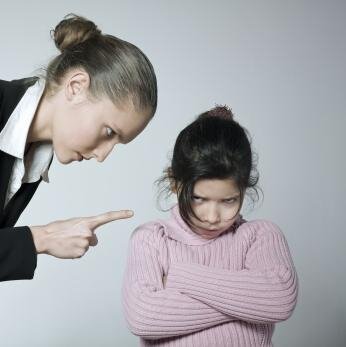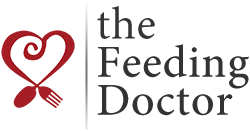Questionable things 'experts' say #7: "The way you eat is unacceptable."
 I cringed when a client told me that their new pediatrician admonished her five-year-old son (with severe food anxieties and selective eating who would likely qualify for a feeding disorder diagnosis) with this: "The way you eat is unacceptable."I cringe often, when I hear some of the things that my colleagues in medicine say to young children, even if they think it is for their own good. (My guess is that this doc has no experience or education around feeding problems, all too common I'm afraid. See Questionable things #6, and #4 , and #1. )Young children in particular are unable to process a message like, "The way you eat is unacceptable." What the child hears is, "You are unacceptable."
I cringed when a client told me that their new pediatrician admonished her five-year-old son (with severe food anxieties and selective eating who would likely qualify for a feeding disorder diagnosis) with this: "The way you eat is unacceptable."I cringe often, when I hear some of the things that my colleagues in medicine say to young children, even if they think it is for their own good. (My guess is that this doc has no experience or education around feeding problems, all too common I'm afraid. See Questionable things #6, and #4 , and #1. )Young children in particular are unable to process a message like, "The way you eat is unacceptable." What the child hears is, "You are unacceptable."
Guilt, shame, lectures, prodding, or tough love don't help children (or their adults) make better choices. In fact it likely makes the anxiety about eating worse, and we know anxiety is the enemy when learning to eat.
I'm not saying that a child with feeding struggles should be dismissed or ignored, but the parents primarily need help to support their children. Children don't need lectures, rationalizing, shaming or bullying—from peers or their pediatrician. While the 2 or 3 year-old selective eater doesn't feel a lot of shame about eating, the five year-old certainly can. The five-year old who so desperately doesn't want to let down his parents or his new doctor that he will agonizingly swallow two bites of apple-sauce while crying and gagging before refusing altogether...How about the doc tries:
- "I'm sorry you had that experience where you couldn't find anything to eat at that party. That must feel really tough. Let's see if your mommy and I can figure out a way to help."
- "You like pancakes? Me too! I like mine with blueberries. Maybe you can help your Daddy make pancakes sometime. It's super fun!"
Hitting people is unacceptable, swearing at the table or throwing food may be unacceptable, but the way a child eats is the way a child eats right now, for any variety of reasons, with many of the child's behaviors being understandable reactions and adaptations to painful or coercive experiences. Accepting, unconditional love and support will go further to helping him learn to feel good about food and eating than shame or guilt.Primary care docs can't be expected to solve these complex issues in a 7 minute well-child check, but they can do a better job of learning about, screening for and supporting parents. Learning about feeding problems, and getting the right help for the family is key.
